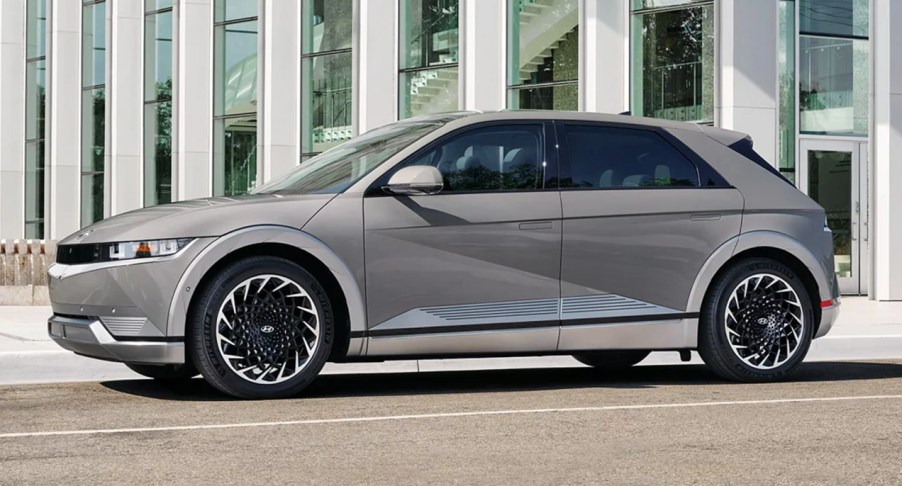
Who Makes Hyundai Ioniq 5 Batteries?
The Hyundai Ioniq 5 is the South Korean automaker’s popular small electric SUV. The Ioniq 5 competes with the best models in its segment. Who produces the Hyundai Ioniq 5’s battery?
Who makes the Hyundai Ioniq 5 battery?
The Ioniq 5’s battery cells are produced by a company called SK Innovations. The pack and battery modules are developed by Hyundai Mobis, a subdivision of Hyundai Motor Group.

Electric vehicles use powertrain systems that are very different from internal combustion engine vehicles. EVs are heavily reliant on batteries. A faulty battery could be a huge issue for an electric vehicle. According to CNBC, General Motors is looking to cut ties with LG following serious battery overheating issues that have led to recalls.
Thus far, Hyundai hasn’t had any serious Ioniq 5 reliability issues since the nameplate debuted. In fact, the EV is proving to be one of the most reliable models in its segment (thus far). Reliability is a significant factor in the purchasing process. The unreliability of some EVs deters consumers from getting them. In contrast, the Ioniq 5’s reliability is attracting drivers because it seems to be one of the few electric vehicles on the market without major battery problems.
American-made EVs like the Ford Mustang Mach-E and Chevy Bolt EV are struggling because of battery issues. The automaker that forms the best EV battery development partnership could dominate the market. Thus far, it appears that Hyundai is the electric vehicle automaker with the most reliable battery in recent years. Even Tesla has had its struggles with battery issues despite being in the EV space much longer than other automakers.
Is the Hyundai Ioniq 5 a good SUV?

The 2023 Hyundai Ioniq 5 starts at $41,450. It makes 168 horsepower. The Ioniq 5 gets 220 miles of driving range. It has become incredibly popular because it’s affordable and provides great value.
The small electric SUV is a huge success for Hyundai. It won the World Car of the Year award in 2022. The newest model year may be more expensive, but it still has significant advantages over rivals. Since small SUVs are the most popular vehicles in America, the small electric SUV segment will become increasingly important in the next decade.
Should you get a small electric SUV?
The electric vehicle market is still in its infancy. Charging infrastructure is a huge hurdle that the EV market will have to overcome for the vehicles to become ubiquitous. Private companies and local governments will have to install level two fast charging stations across the country in convenient locations before EVs become as common as ICE vehicles.
At the moment, electric vehicles cost significantly more than internal combustion engine vehicles. It could take years for EVs to become as practical and convenient as their gas-powered predecessors, but there’s hope on the horizon.
Plenty of major automakers, along with the American government, are pouring money into improving charging infrastructure. It appears that EVs are here to stay, but the average consumer may not be comfortable buying one yet. In the meantime, hybrid and plug-in hybrid electric vehicles are a happy middle ground between ICE vehicles and EVs.



